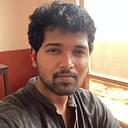Last weekend’s Xfinity Series race at Martinsville saw arguably the ugliest version of stock car racing. The blatant lack of racing ethics during the event created a huge uproar across the sport. It led to NASCAR holding a firm meeting with all the drivers ahead of the race in Darlington. However, Carson Hocevar was not happy with the promotion’s intervention.
Advertisement
As many as 14 cautions were brought out during the Martinsville Xfinity race, with nine coming out in the final 100 laps of the 256-lap event. The race ended with a multi-car crash when Sammy Smith knocked Taylor Gray out of the lead in Turn 3 on the final lap.
Being quite an aggressive driver by nature, Hocevar was at the center of controversy at the Atlanta Motor Speedway earlier this year after causing incidents with Ryan Blaney and Ross Chastain. However, he recorded the best finish of his Cup Series career (second place) at the race. The Spire Motorsports driver perhaps took an exception to NASCAR’s intervention to keep driver aggression in check because pushing the envelope has brought him results.
“You know, sometimes out of desperation, it could be. You know I’m guilty of a lot of it, right? You could get desperate at times or feel like you have to win, and that just blinds your judgment at times,” said Hocevar.
There is also a good reason he doesn’t want NASCAR to heavily penalize such aggression. Penalties could stifle drivers, affecting their performances. “You know, people that are super aggressive are going to potentially feel handcuffed a little bit there. I feel like it always self-polices itself anyways,” added Hocevar.
During the Saturday meeting with the drivers, NASCAR also stated that it does not want to intervene too much.
Self-policing is the best way forward
All Xfinity Series drivers were mandated to attend the driver meeting on Saturday. Austin Hill was a part of the meeting, and he revealed some key details about what the NASCAR officials were thinking.
For one, they appear to have made it clear that they don’t want to make in-race calls against reckless drivers if they can help it. There goes Denny Hamlin’s demand for the black flag to be used more often in a stricter manner.
“Well, NASCAR made it very, very clear that they don’t want to be in the ‘ball and strike’ business. They don’t want to be making all these calls. So they said for us to help them with that,” explained Hill.
Drivers themselves don’t want to create situations that force NASCAR to step in and begin throwing the black flag or parking cars. Self-policing appears to be the answer here.
How well drivers do it will determine the future course of action the promotion would take when it comes to aggression on the track.





